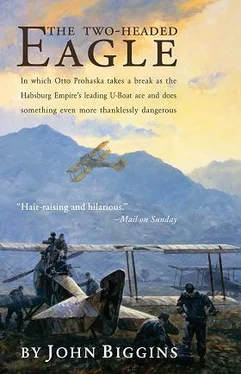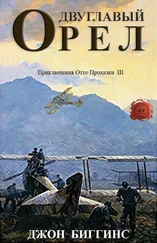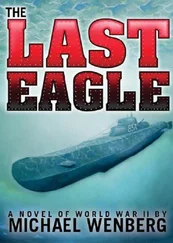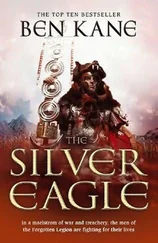He turned to look at me again, smiling a curious little self-satisfied smirk. “Ah, Herr Linienschiffsleutnant, there I am afraid that I have to correct you: the victory, if it is credited to anyone, must be credited to you as commander of the aeroplane.”
“But all the shots were fired by Feldpilot Toth, from the forward machine gun. I did not fire the rear weapon once.”
“Perhaps so; perhaps not. Altitude and the confusion of combat cause people to make mistakes. My reports after you landed were that you had fired the shots.”
“But this cannot be. I can show you if you wish.”
Kraliczek rolled up his eyes in a look of weary patience such as one reserves for dealing with tiresome and confused elderly relatives. He sighed.
“Very well, if you insist I shall accompany you to look. But I cannot take long: I am a very busy man with only two clerks to assist me and the end of the reporting month is drawing near.”
So we strode out—Kraliczek with an insufferable and quite uncharacteristic air of jauntiness—to the Brandenburger being serviced by Feldwebel Prokesch and the rest of the ground crew. They put down their work and stood to attention as we approached.
“Feldwebel,” said Kraliczek, “show us the machine guns from this aircraft.” The two weapons had been dismounted and laid out on a trestle bench for cleaning by the armourers. “Open the breech of the forward gun.” Prokesch slid the breech block back as instructed. It revealed a firing-chamber as shiny-clean as if the gun had never been fired in its entire life. “Now the observer’s weapon.” The breech slid back to disclose a barrel clogged with the characteristic greyish-black grime of the cordite residue. “There.” He turned to me, smiling. “What did I tell you? Don’t worry: an understandable mistake. You had better get to bed early tonight. As for that Italian aeroplane of yours, you had better claim it in a separate report to Army Headquarters . . .”
“With respect, Herr Kommandant, I have no wish to claim it as a victory since it was none of my doing.”
“Oh well, that’s all right then. If you don’t want to claim it then no one gets it and it didn’t happen: much the best thing if you ask me. Such miscellaneous entries make nonsense of orderly compilation. Only by ruthless excision of such statistical irrelevances can we hope to see the greater picture and achieve that organisational perfection which will bring us victory. Now, if you will excuse me, I have wasted enough time already this morning on these trifling matters. I must be getting back.”
“Herr Kommandant?”
“Yes?” He turned to look back at me.
“By your leave, I have what I think may be a useful suggestion to make.”
“And what might that be?”
“If we were to regard all the separate events of this world war as statistical irrelevances, as you call them, then perhaps we would find that the war had never happened at all. In which case we could all stop killing one another and go home.”
He thought this over for some moments, then smiled at me. “Yes, yes, Herr Linienschiffsleutnant: very amusing, most droll. Now, perhaps if you will excuse me at last? Some of us have better things to do than to waste our time composing witty epigrams. Myself, as a professional soldier, I would have considered that war was too serious a business for jokes.”
I noticed that throughout this exchange Sergeant Prokesch and the ground crewmen had been busy about their work, backs turned to us, rather than standing about with ears cocked relishing every word and storing it up to be recounted in the mess that evening. I sensed that the men were embarrassed by the scene they had just witnessed. Although they had acted under orders in swapping the barrels of the two machine guns, they doubtless felt that they had been made accomplices to a shabby piece of knavery and were correspondingly ashamed of themselves. I served in the armed forces for over half my life, and one of the things that I learnt was that a sense of honour is by no means the exclusive property of the commissioned ranks.
As for myself, I wandered back towards the mess tent in a state of some depression. In my sixteen years as a career officer of the Noble House of Austria it had been my lot to serve under some notable blockheads. But in all that time I had never met one, however tyrannical, stupid or plain incompetent he might have been, who would knowingly have told a lie or practised sleight of hand either on a brother-officer or upon the lowliest ranker. For the first time it struck me what disaster had fallen upon Old Austria now that creatures as abject as Hauptmann Kraliczek were creeping into positions of command. As I passed the Kanzlei hut I saw Meyerhofer descending the steps. I was about to speak with him concerning my recent conversation with our commanding officer. But he spoke first.
“It’s Schraffl and Jahudka. We’ve just had a telephone call from Vertoiba. They’ve crash-landed in a field near by.”
“Are they all right? ”
“Jahudka’s dead. Schraffl’s unhurt it seems but in a bad state of nervous shock. They’re bringing him along by motor car. They should be here any minute.”
“What happened? ”
“So far as I can make out from talking to Schraffl they lost contact with you in the clouds east of Palmanova, then saw an aeroplane falling out of the sky a few minutes later. They thought that it must be you and Toth, so they gave full throttle to get back across the lines. I gather that they crossed near Gradisca at about four thousand metres to avoid the flak—and had a Nieuport single-seater drop on them out of the sun. The first burst knocked the engine out and put a bullet through Jahudka’s neck. They fell about a thousand metres with petrol pouring all over them from the fuel tank before Schraffl managed to drag Jahudka out of the pilot’s seat and pull them level again. The poor devil was already near-dead—severed artery by the sound of it—so all Schraffl could do was to glide them down into a field on our side of the lines. It was a miracle they weren’t set alight. With the propeller windmilling the magneto must have been sparking all the way down, a good ten minutes or so. The people at Vertoiba say that when they reached the wreck they found Schraffl still in the pilot’s seat, sitting up to his ankles in a pool of petrol and staring into space. A pretty impressive piece of flying though by the sound of it, bringing down a dead machine with a dying man on board and the cockpit awash with petrol. Rather him than me though, all the same. The poor sod’s had a rough enough war of it already by all accounts. He got blown up by a shell at Sanok, even before he stopped that bullet in the knee, and they say he’s never been quite the same since.” We turned. It was the sound of a motor-car horn. A large dun-coloured staff car was lurching up the trackway from the Haidenschaft road. It drew up, and the passenger door was opened for Schraffl, dazed and grey-faced, to be set down, half carried between two medical orderlies. He was still wearing the jacket of his leather flying overalls, but I saw that his breeches and puttees were saturated in blood like the garments of a butcher. They led him past us to undress him and lay him out on the folding bed in our shared tent. As they left, one of the orderlies spoke with Meyerhofer.
“The Medical Officer thinks he’ll be all right after a while, Herr Leutnant. He’s given him an injection to make him sleep, and says if there’s any further trouble to telephone the hospital in Haidenschaft. It’s acute nervous prostration, but the MO says he should get over it once he’s had a spell of leave.”
Schraffl did not get over it, and he never managed to go on leave. He got up that evening and ate a little, saying nothing to any of us, then went back to bed and slept heavily until mid-morning of the next day, when our servant Petrescu came running to me out on the field.
Читать дальше












